Indigenous Governance Database
federal Indian law
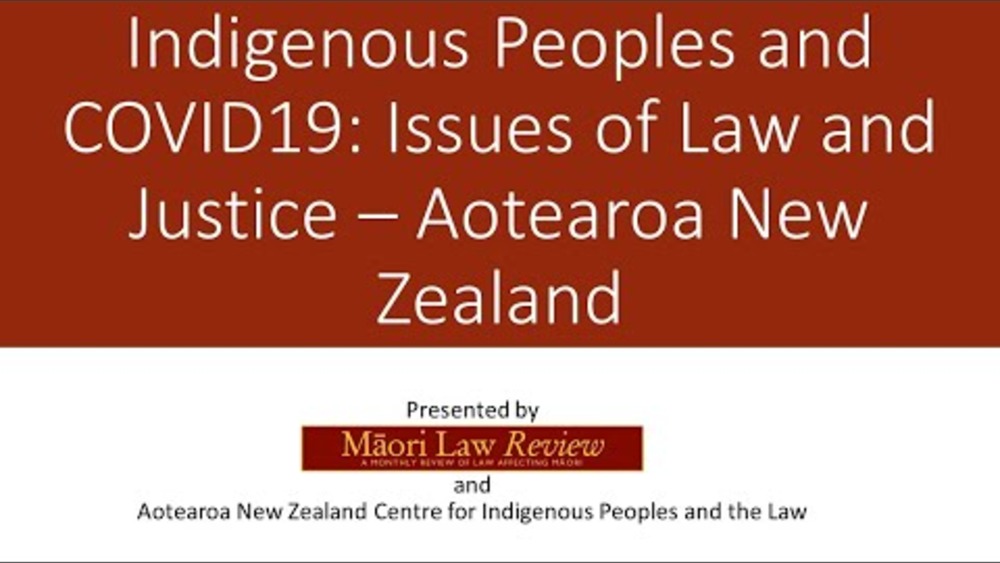
Indigenous Peoples and COVID-19: Issues of Law and Justice – Aotearoa New Zealand
A co-production of New Zealand's Victoria University of Wellington and the Aotearoa New Zealand Centre for Indigenous Peoples and the Law, the "Indigenous Peoples and COVID-19: Issues of Law and Justice" is a series of conversations focused on the experiences of Indigenous Peoples with COVID-…
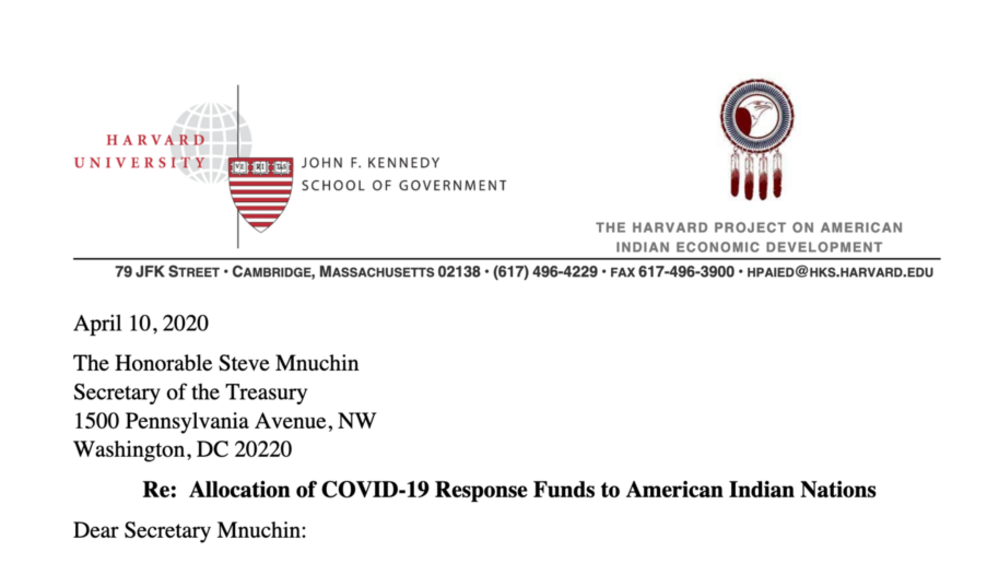
HPAIED Letter to the Treasury: Allocation of COVID-19 Response Funds to American Indian Nations
Dear Secretary Mnuchin, We write to respectfully comment on the impact of the current COVID-19 crisis on American Indian tribal economies, tribes’ responses to the crisis, and on implications for the allocation of federal COVID-19 response funds to federally recognized tribes under the CARES Act…
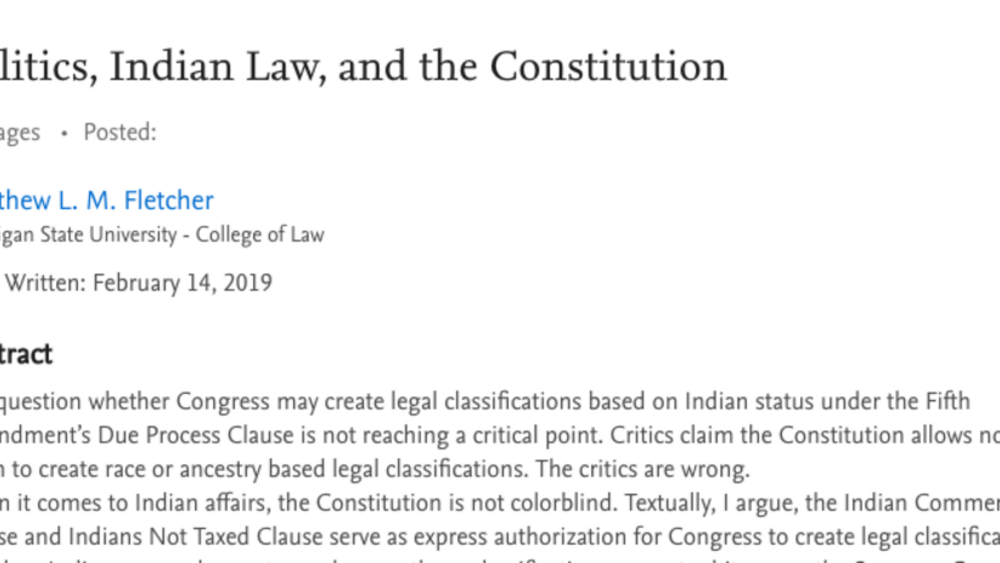
Politics, Indian Law, and the Constitution
The question whether Congress may create legal classifications based on Indian status under the Fifth Amendment’s Due Process Clause is not reaching a critical point. Critics claim the Constitution allows no room to create race or ancestry based legal classifications. The critics are wrong. When it…
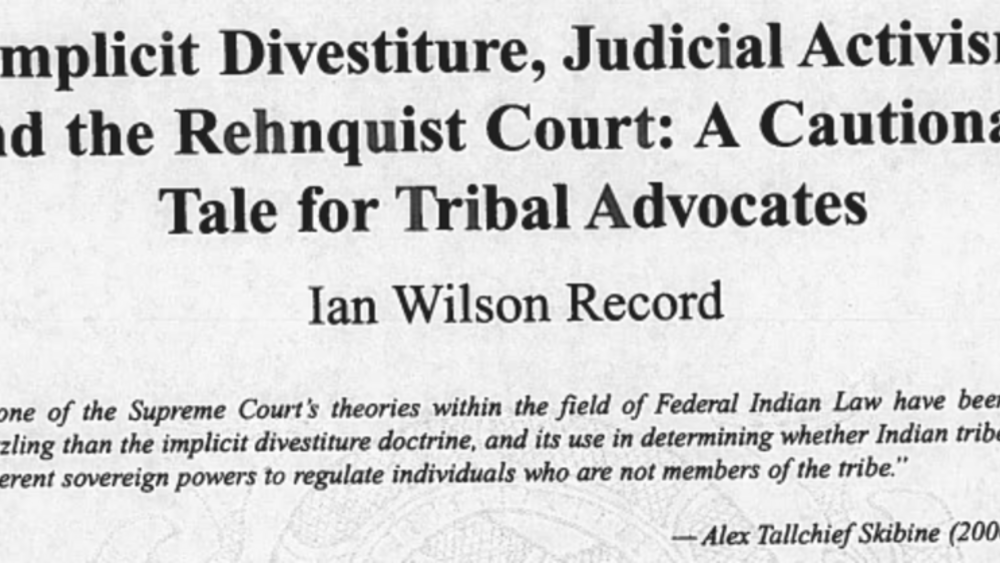
Implicit Divestiture, Judicial Activism and the Rehnquist Court: A Cautionary Tale for Tribal Advocates
Many tribal advocates have likened the legal corpus known as Federal Indian Law to a pendulum that swings back and forth under the forceful hand of the United States government and its political inclinations at any given moment. While this swinging pendulum has brought great uncertainity and…
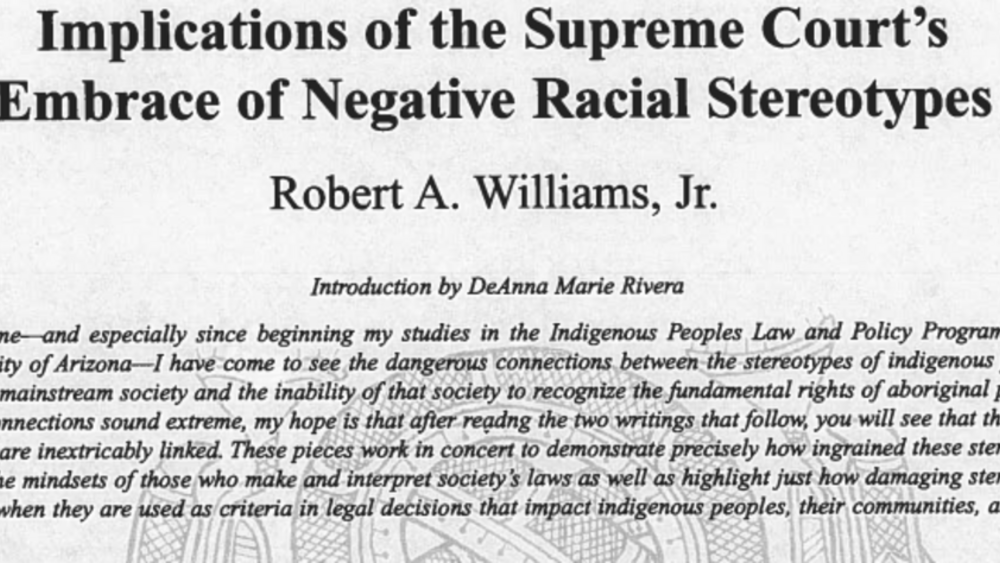
Implications of the Supreme Court's Embrace of Negative Stereotypes
The issues surrounding Native stereotypes should not be dismissed or diminished as merely "surface" problems. "Indian" stereotypes go to the core of the legal, political and economic struggles that Indigenous peoples confront in their work to preserve and strengthen their respective cultures and…
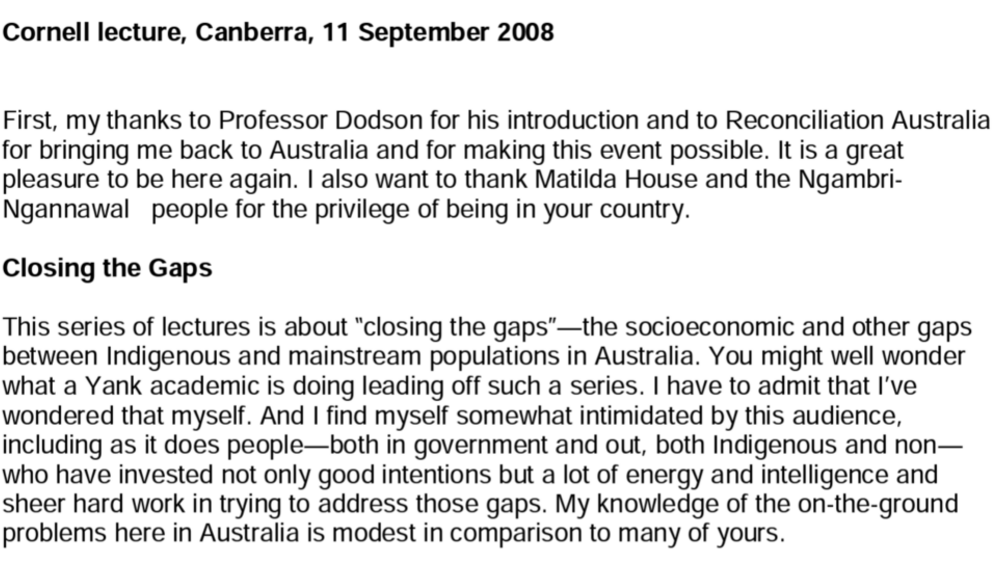
Closing the Gap: A North American Perspective
This series of lectures is about “closing the gaps”–the socioeconomic and other gaps between Indigenous and mainstream populations in Australia. You might well wonder what a Yank academic is doing leading off such a series. I have to admit that I’ve wondered that myself. And I find myself somewhat…
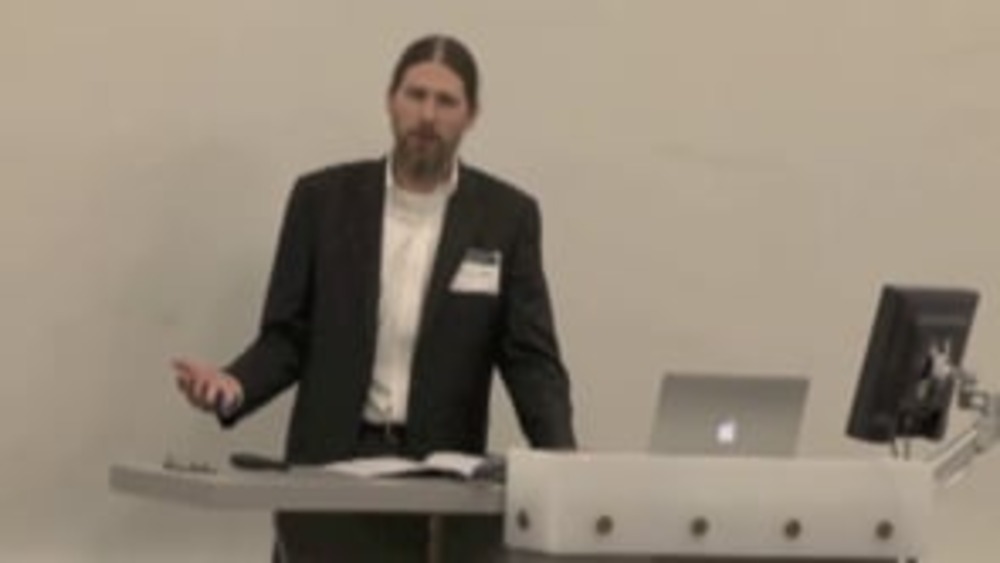
Good Native Governance Break Out 2: Indian Gaming in California
UCLA School of Law "Good Native Governance" conference presenters, panelists and participants Jonathan Taylor, Victor Rocha, and Alexander Tallchief Skibine discuss gaming and its impact for Native nations in California. Mr. Taylor provides a summary of data collection illustrating change in…
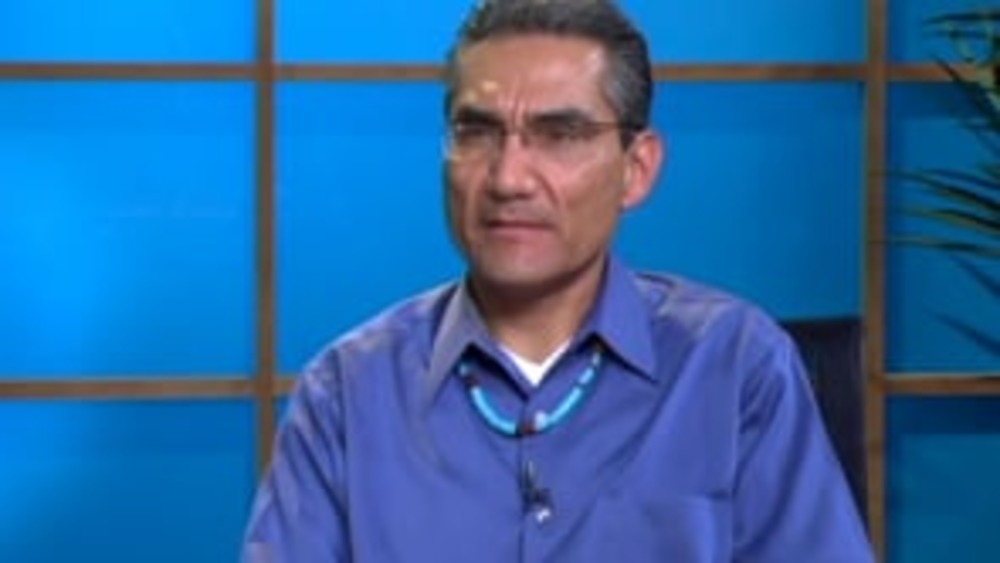
Joseph Flies-Away: The Role of Justice Systems in Nation Building
In this in-depth interview with NNI's Ian Record, Joseph Flies-Away, citizen and former chief judge of the Hualapai Tribe, discusses the central roe that justice systems can and should play in Native nation rebuilding efforts, how justice systems serve as platforms for healing and cultural renewal…
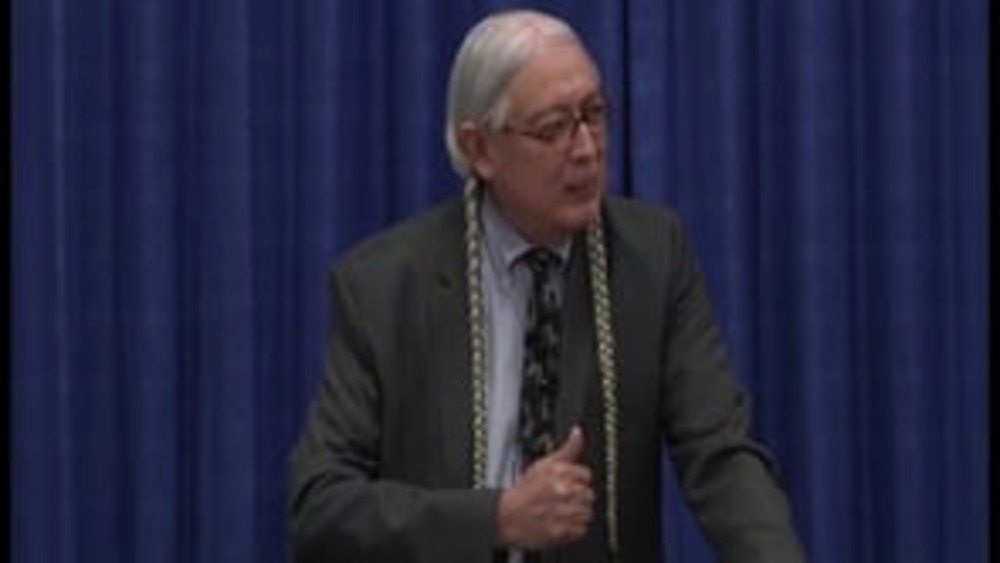
Walter Echo-Hawk: In the Light of Justice: The Rise of Human Rights in Native America & the U.N. Declaration of the Rights of Indigenous Peoples
Walter Echo-Hawk, legendary civil rights attorney, discusses his latest book In the Light of Justice: The Rise of Human Rights in Native America & the UN Declaration of the Rights of Indigenous Peoples, stressing the need for Native nations and peoples to band together to mount a campaign to…
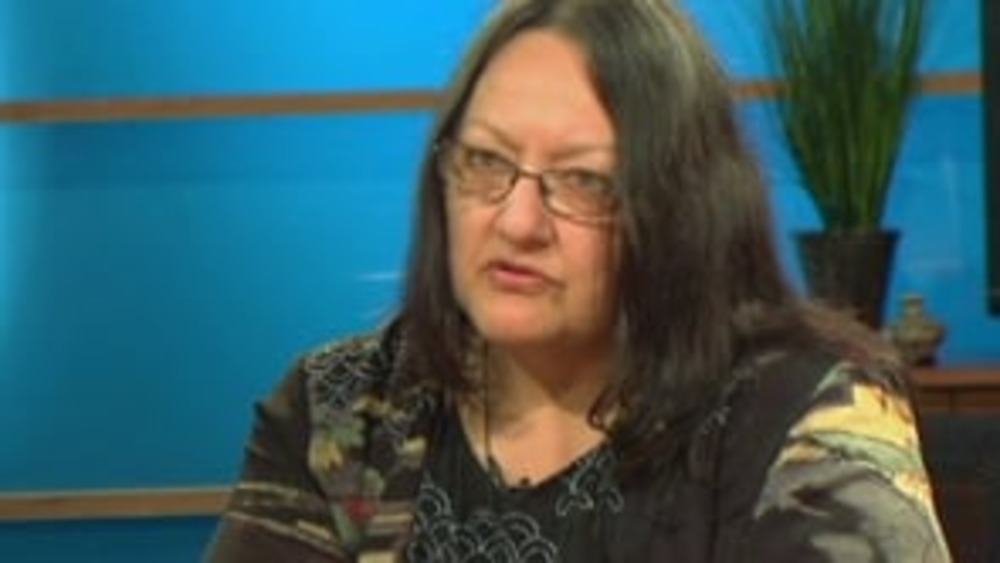
Suzan Shown Harjo: Five Decades of Fighting for Tribal Sovereignty and Self-Determination
In this wide-ranging interview, longtime Native American rights advocate Suzan Harjo discusses her involvement in the development and ratification of the American Indian Religious Freedom Act, the Native American Graves Protection and Repatriation Act, and the legislation creating the National…

John Petoskey: Tribal Sovereign Immunity and the Michigan v. Bay Mills case: What the Future Likely Holds and How Native Nations Should Prepare
In this lecture for faculty and students of the University of Arizona's Indigenous Peoples Law and Policy Program, NNI Indigenous Leadership Fellow John Petoskey provides a comprehensive background of the Michigan v. Bay Mills case currently pending before the U.S. Supreme Court and discusses what…
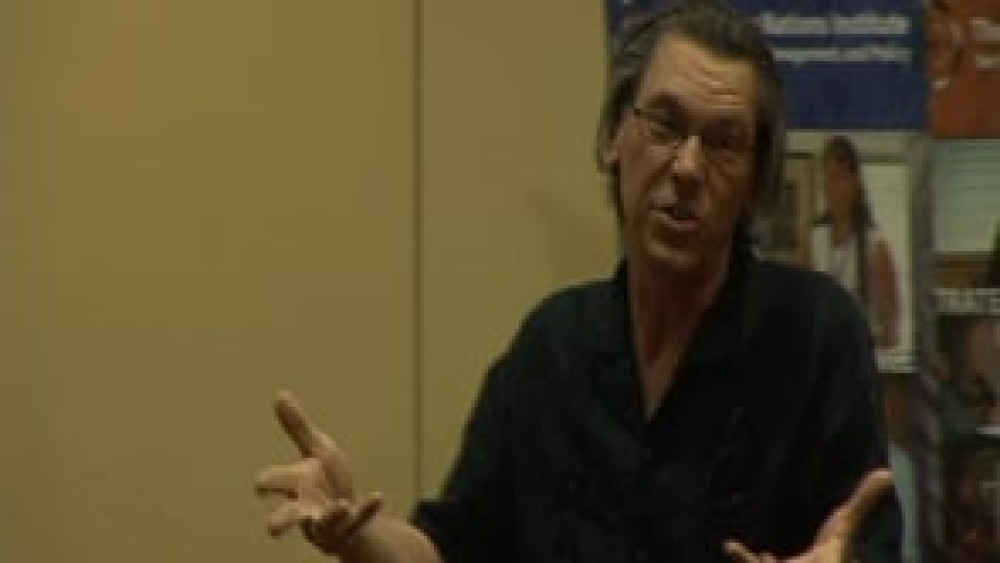
Robert A. Williams, Jr.: Law and Sovereignty: Putting Tribal Powers to Work
University of Arizona Professor of Law Robert A. Williams, Jr. provides an overview of the U.S. government's centuries-long assault on tribal sovereignty -- in particular the ability of Native nations to make and enforce law -- and stresses the importance of Native nations systematically building…

BIA Head Kevin Washburn Speaks to ICTMN About Bay Mills and the Need to Resolve Water Rights
Interior Secretary — Indian Affairs Kevin K. Washburn was in New York City in September as the historic Peoples’ Climate March and the United Nations General Assembly opened its 69th regular session with the first World Conference on Indigenous Peoples, where he added to our excitement here at…
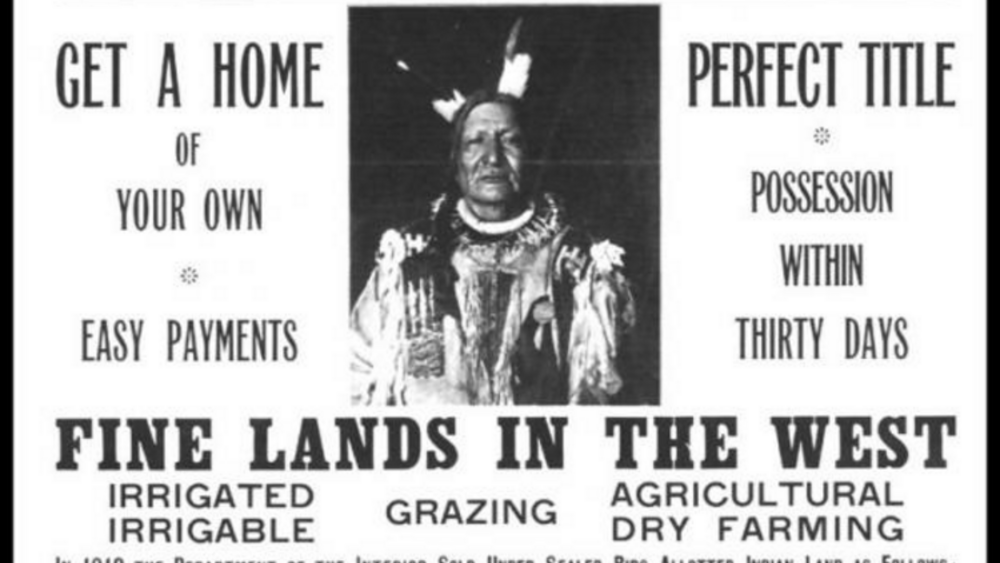
U.S. Land Rights for Indians?
There is an argument within federal-Indian law literature that suggests Indians could have more effectively protected land under U.S. law if they owned land in fee simple rather than under trust. There is better protection for private property under the U.S. Constitution than can be had from…

How to Protect Tribal Lands From Our Deadliest Enemies
In 2001, the U.S. Supreme Court dealt a severe below to Indian sovereignty when it decided Nevada v. Hicks, suggesting to states and counties that when their cops are investigating off-reservation crimes, they need not obtain tribal court warrants to conduct searches or arrests on tribal land. The…
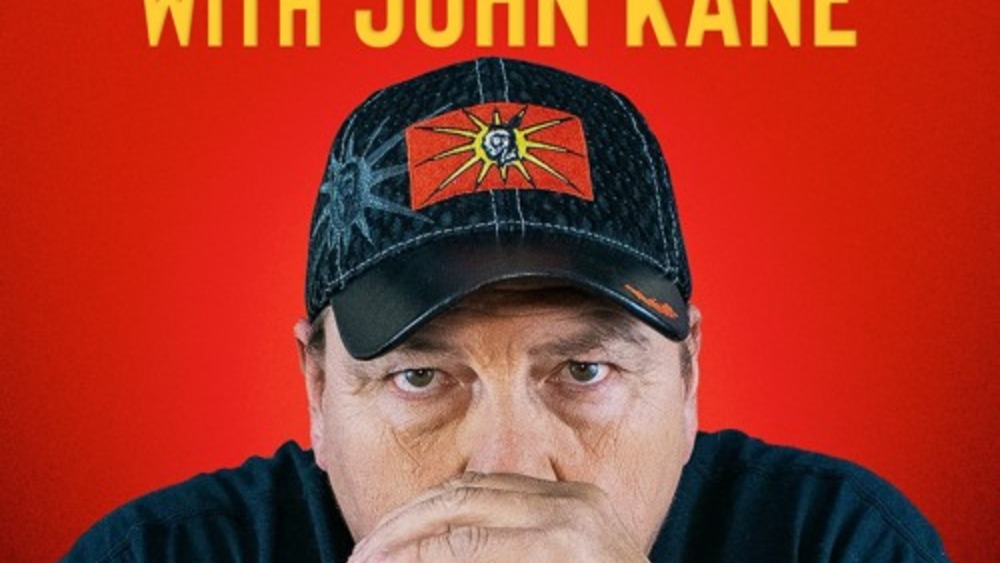
The Legacy of the Doctrine of Discovery
Let's Talk Native Radio program host John Kane discusses the implications of asserting the Doctrine of Discovery on Native lands and the role that treaties play in recognizing and affirming the inherent sovereignty of Native nations.
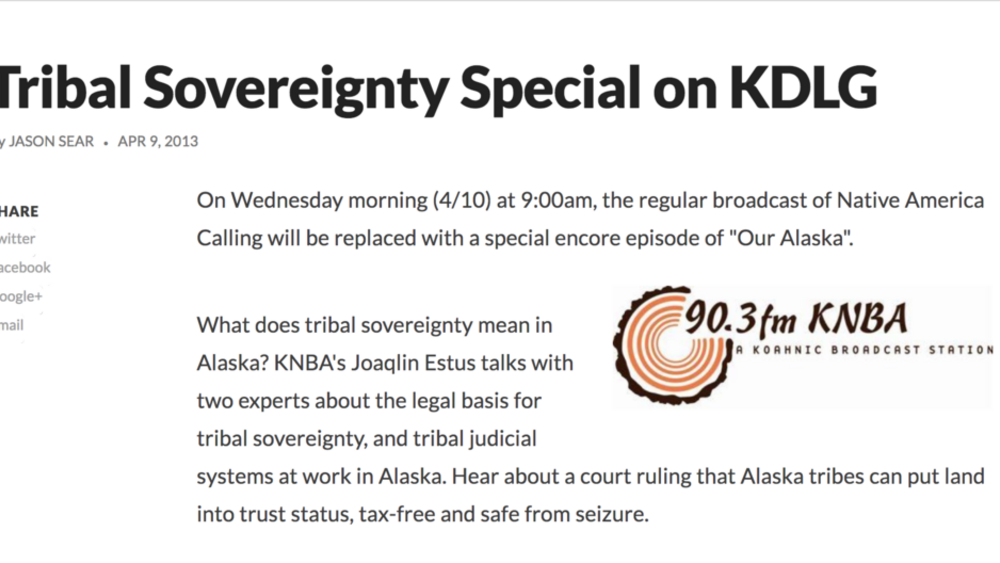
Tribal Sovereignty Special
What does tribal sovereignty mean in Alaska? KNBA's Joaqlin Estus talks with two experts about the legal basis for tribal sovereignty, and tribal judicial systems at work in Alaska. Hear about a court ruling that Alaska tribes can put land into trust status, tax-free and safe from seizure...
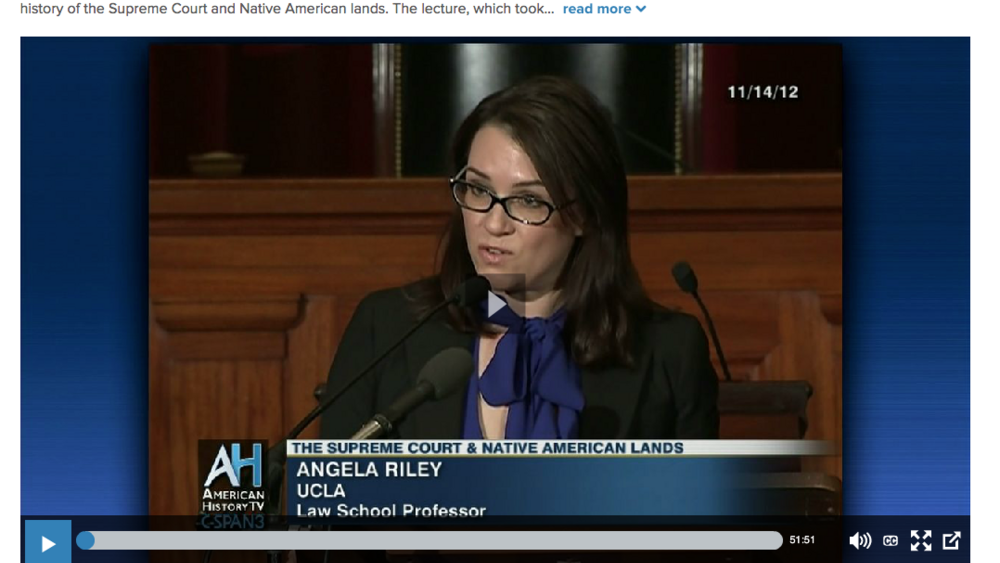
Native American Lands and the Supreme Court
Tribal judge and legal scholar Angela Riley (Citizen Potawatomi) spoke in the U.S. Supreme Court chamber about the history of the Supreme Court and Native American lands. The lecture was one in a series hosted by the Supreme Court Historical Society on the Constitution, the Supreme Court, and…
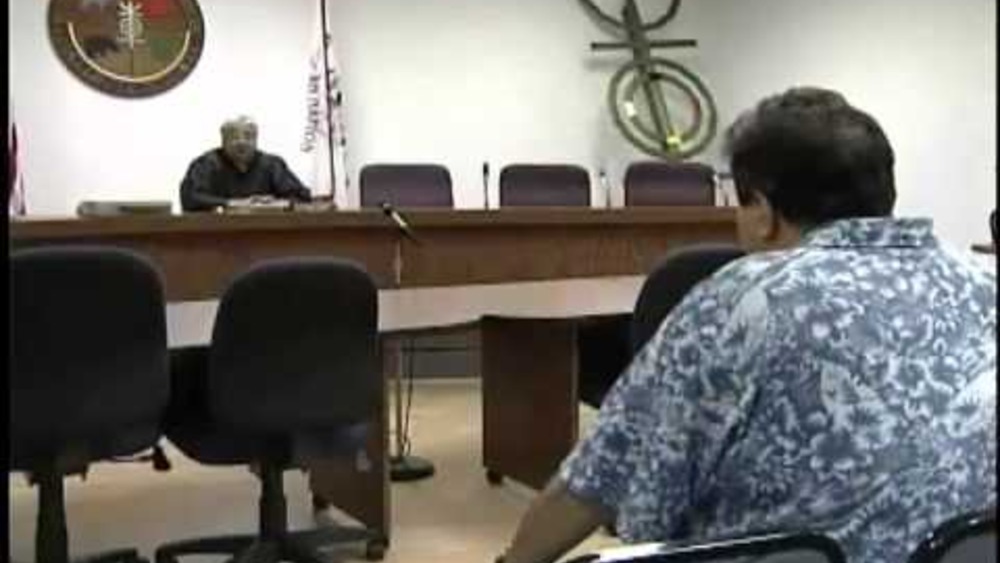
Tribal Nations - The Story of Federal Indian Law
"Tribal Nations - The Story of Federal Indian Law" and discusses how the U.S. Supreme Court has handled Indian sovereignty over the past 50 years.
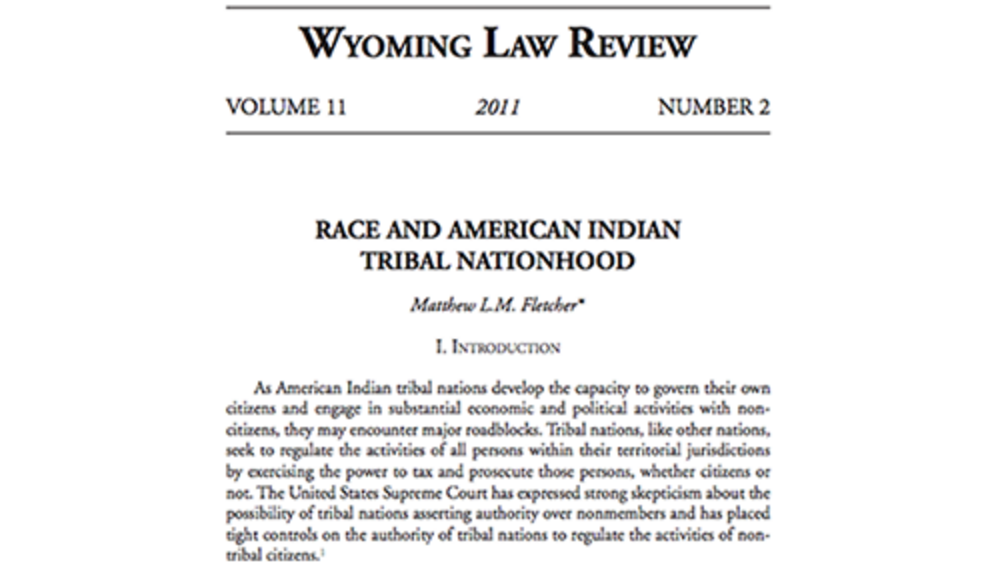
Race and American Indian Tribal Nationhood
This article bridges the gap between the perception and reality of American Indian tribal nation citizenship. The United States and federal Indian law encouraged, and in many instances mandated, Indian nations to adopt race-based tribal citizenship criteria. Even in the rare circumstance where an…
